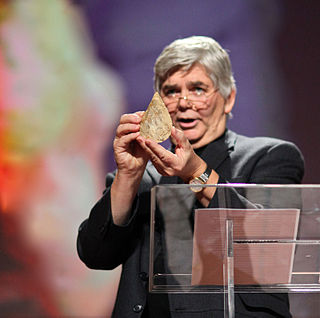A Quote by Hermann Broch
The maker of kitsch does not create inferior art, he is not an incompetent or a bungler, he cannot be evaluated by aesthetic standards; rather, he is ethically depraved, a criminal willing radical evil. And since it is radical evil that is manifest here, evil per se, forming the absolute negative pole of every value-system, kitsch will always be evil, not just kitsch in art, but kitsch in every value-system that is not an imitation system.
Related Quotes
To tell you the truth, I am rather perplexed by the concept of 'art'. What one person considers to be 'art' is often not 'art' to another. 'Beautiful' and 'ugly' are old-fashioned concepts that are seldom applied these days; perhaps justifiably, who knows? Something repulsive, which gives you a moral hangover, and hurts your ears or eyes, may well be art. Only 'kitsch' is not art - we're all agreed about that. Indeed, but what is 'kitsch'? If only I knew!
Kitsch is the daily art of our time, as the vase or the hymn was for earlier generations. For the sensibility it has that arbitrariness and importance which works take on when they are no longer noticeable elements of the environment. In America kitsch is Nature. The Rocky Mountains have resembled fake art for a century.
High-class kitsch may well be "perfect" in its form and and composition: the academic painters were often masters of their craft. Thus, the accusation that a work of kitsch is based not on lack of for or aesthetic merit but on the presence of a particularly provocative emotional content. (The best art, by contrast, eschews emotional content altogether.)
When one has once accepted and absorbed Evil, it no longer demands the unfitness of the means. The ulterior motives with which youabsorb and assimilate Evil are not your own but those of Evil.... Evil is whatever distracts. Evil knows of the Good, but Good does not know of Evil. Knowledge of oneself is something only Evil has. One means that Evil has is the dialogue.... One cannot pay Evil in installments--and one always keeps on trying to.

































